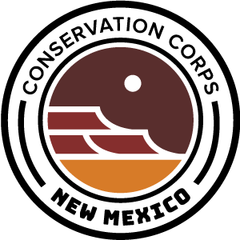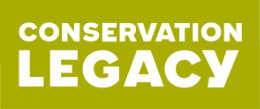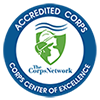
FAQs
Welcome | First Day | FAQs | Gear | About the Area | The Field Guide Blog
Frequently Asked Questions

Contact Genevieve Tucker, Program Director if you do not find an answer below, or if you have any additional questions: (575) 640-8540 // gtucker@conservationlegacy.org
-
Most of the required admission paperwork is completed through our online onboarding system, SilkRoad. You should receive an email shortly after your acceptance with instructions to access this account. If you have a questions, or require assistance, please contact CCNM staff.
AmeriCorps requires all members to be pre-enrolled prior to their first day of their term of service. All paperwork is REQUIRED to be finished before your first day. Please note, we do schedule our first day of orientation to fall the day before your term of service begins, to tie up loose ends and prevent late starts.
-
If you are an AmeriCorps member, you will receive the AmeriCorps Education Award at the successful completion of your term. You will be able to access this award through my.americorps.gov (don't forget your login password). The award is distributed like a grant, and the website can help you with filling out the correct forms to apply to your education institution. This money WILL count as income on your taxes for the year in which you use it, so plan accordingly.
The AmeriCorps award can be applied towards college tuition, student loans, certain NOLS and Outward Bound courses, and other educational programs and expenses. There are also a number of colleges and universities that will match the award amount. Check out the alumni pages of our website for more information on how to use your award and what you can use it for.
Pre-Service/Enrollment
-
- Remember to bring ORIGINAL IDs including a Signed Social Security Card (Contact the Social Security Administration if you need a replacement card - it can take up to two weeks to receive your new card), Birth Certificate and government issued photo ID -OR- Valid Passport. Contact CCNM staff immediately if you do not have access to the proper IDs to discuss alternative options.
- Food, snacks, and water to last you through the entire day.
- Comfortable clothing including closed toed shoes.
- Notebook and pen if you like to take notes.
In most circumstances, your first day is spent in the office and you will not need to bring your camping gear. You should expect to receive an orientation email that specifies what your first day and first few weeks are expected to look like.
-
Your stipend will be deposited either in your bank account, or alternatively onto an issued debit card. Deposits are made bi-weekly (once every two weeks) throughout your term. Depending on when your term of service begins, and how it falls within a pay period, you may need to wait up to three weeks before receiving your first deposit. Speak with the CCNM staff to learn more about pay periods. Members must submit a timesheet after each hitch.
First Day and first week
-
Training for each crew will vary, most crews start with a week of orientation and a week of skills training before work begins.
Orientation will include lessons focused on outdoor living, nutrition in the field, Leave No Trace ethics, crew culture, and conflict management. Basic First Aid and CPR may be a required course during orientation depending on your project for the season.
Skills Training will be a week focused on the primary type of work you will complete throughout the season. This could include herbicide use/application training, crosscut training, trails training, fencing training, or chainsaw training. Crosscut and Chainsaw trainings will provide most members who participate with a USDA recognized certification. These training also require a Basic First Aid and CPR certification that will be provided by CCNM during orientation.
Wilderness First Aid is an optional certification that will be available at least once during your season. This training will occur on days off and is completely optional to anyone interested in participating.
Note—if your term of service begins after the posted orientation date, the training you receive will vary.
-
All of our programs are non-residential, so where you stay during your days off is up to you. See the about the area page for more info. CCNM staff can put you in contact with other crew members starting at the same time as you so you can explore housing options as a group.- chances are, they are looking for a place to stay or a camping buddy as well! On the first day, staff will reserve time for those looking for housing to connect and hold a discussion.
-
The typical schedule is an eight day, 10-hour per day, hitch followed by six days off, with most hitches starting on Tuesday. Alternatively, a schedule could be four 10-hour days on project followed by three days off. Schedules will vary by project, and is subject to change at any time during the season.
Projects are either in town, front country or back country and depends on the proximity of the work site. The day starts at 7:00 AM with a stretch and safety meeting. The day includes two 15-minute breaks and a 30-minute lunch. The day concludes at 5:30 PM and is followed by dinner, camp chores, debrief or crew activity.
The schedule is subject to change at any time. Staff will notify crews with as much prior notice as possible.
-
We request members utilize their scheduled days off to make plans or appointments. If you have an important event, such as a family wedding, we may approve unpaid leave, though it is not guaranteed. We request you provide notice as early as possible if this is the case, preferably prior to your season start. In the case of a family emergency, you may take time off, but may not receive your stipend for time missed. In most cases, when time off is absolutely necessary, members are required to make up missed hours.
-
CCNM believes in the ethic of respecting nature and respecting each other. Certain technologies can conflict with this, so all participants are expected to follow these guidelines: the use of cell phones should never interfere with work, chore, group, meal, rig-up, and de-rig times. You are expected to be present and available at established times.
Crew Leaders may implement technology policies based on project/place needs, crew dynamics, or abuses of the policy.
Service can be spotty or non-existent in many of the areas where we work, so plan accordingly and let people who you care about, and who care about you, know that you may be out of touch during projects.
All personal music/video devices are prohibited during the workday and during all group activities.
Headphones are not allowed to be worn on the work site.
-
Yes. Weather in New Mexico fluctuates a lot and crews are expected to work through all weather conditions including - heat, rain, snow, cold/freezing temperatures, hail, and wind - as long as the crew is able to maintain safety.
When working and living outdoors, it's important to have gear that will keep you safe and comfortable. New Mexico's ecosystem varies greatly across the state: crews may be working on projects in desert basins or snowy mountain peaks. Showing up prepared for all kinds of weather conditions is pivotal to a positive experience. Temperatures can fluctuate widely between day and night and depending on the elevation of your project.
Check out the Gear section for suggestions.
If weather becomes dangerous, work will stop, and Crew Leaders will instruct you on lightning procedures, or other safety precautions.
-
All Crew Leaders are equipped with a cell phone (or another communication device depending on the reception in the area where you are working) and will be able to contact help.
If you are injured in the field, you may be covered by our workers compensation, and your Crew Leader will have the appropriate forms to file a claim.
If your friends or family have an emergency and need to reach you but are unable to, they should contact the office and the message will be relayed by CCNM Staff.
-
Conservation Corps New Mexico prohibits tobacco use (including e-cigarettes) inside CCNM vehicles. Tobacco may be used before and after the workday and on designated crew breaks only. The same guidelines apply to volunteer events, CCNM sponsored events, and any other instance in which you are representing the organization.
Participants choosing to use tobacco are expected to honor the rights and health of their fellow members by refraining from smoking in communal areas and tight quarters.
Agency policy regarding tobacco use may supersede CCNM policy. In addition, during periods of restrictions due to the potential for wildfire, smoking will not be allowed at any time during field activities including at camp.
-
Grocery budgets are provided for camping crews. This includes breakfast, lunch, dinner, and snacks. You will have to time to shop with your crew for each week’s provisions, and will be trained on the process during orientation.
Crews will cook meals together and share food through the duration of the hitch. Dietary restrictions and allergies can typically be accommodated, however if you have severe allergy talk to CCNM staff as soon as possible so they can ensure your food safety needs can be accomodated. If you have specific treats you like, feel free to bring those too.
During Service
Contact the CCNM office staff with any questions not answered in the FAQs!




